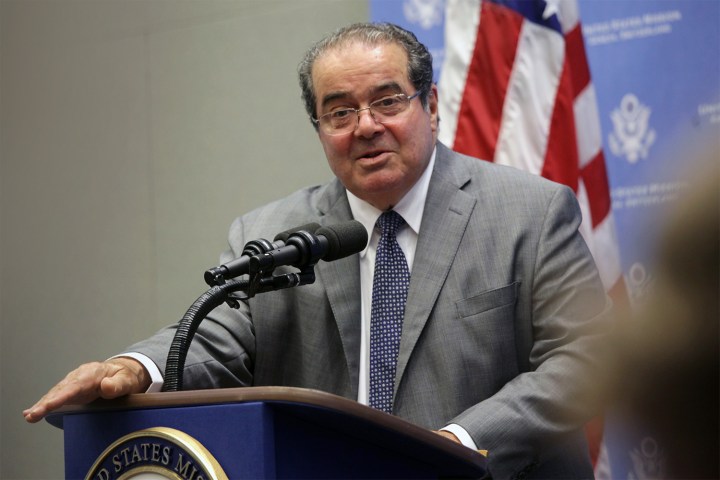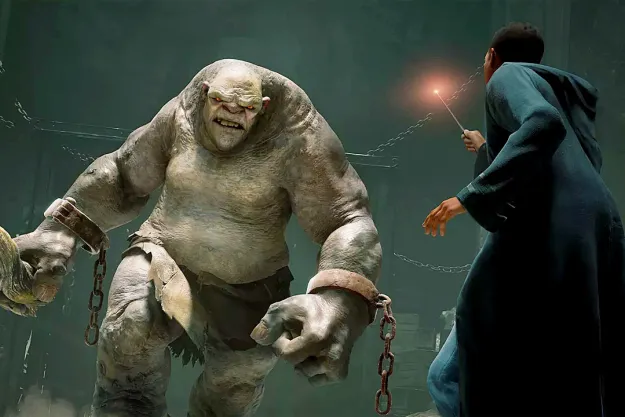
Scalia courted no shortage of controversy, particularly for opinions on homosexuality that many view as regressive, but one count of unexpected praise came this past weekend in a statement from the Entertainment Software Association, noting his majority opinion in a 2011 case that enshrined video games under First Amendment protection as a form of free expression:
The Entertainment Software Association joins those who salute the service and mourn the loss of Justice Scalia. In 2011, when our industry defended the rights of creators and consumers of video games before the U.S. Supreme Court, it was Justice Scalia who authored the historic majority opinion. He declared, with no ambiguity, that video games, like books, movies and other forms of expression, are deserving of First Amendment protections. It was a momentous day for our industry and those who love the entertainment we create and we are indebted to Justice Scalia for so eloquently defending the rights of creators and consumer everywhere.
“Literature draws the reader into the story, makes him identify with the characters …. to experience their joys and sufferings.”
In 2005 California passed a law that restricted the sale of violent video games to minors as it would cigarettes or alcohol. It was immediately challenged by the Video Software Dealers Association and blocked by a District Court injunction ruling it unconstitutional. Then-governor Arnold Schwarzenegger (ironically famous for starring in violent, mass market films) vowed to fight the ruling, bringing the case to the 9th District Court of Appeals, which upheld the District Court’s ruling. In 2010 it moved up to the Supreme Court, and in a 7-2 decision for Brown vs. Entertainment Merchants Association, Scalia wrote the majority opinion that upheld the lower courts’ rulings. In his opinion, Scalia argued that, as an expressive medium, games should fall under the same protections that the First Amendment grants to other types of creative speech:
Like the protected books, plays, and movies that preceded them, video games communicate ideas — and even social messages — through many familiar literary devices (such as characters, dialogue, plot, and music) and through features distinctive to the medium (such as the player’s interaction with the virtual world). That suffices to confer First Amendment protection. Under our Constitution, “esthetic and moral judgments about art and literature … are for the individual to make, not for the Government to decree, even with the mandate or approval of a majority.”
The state of California argued that video games deserved special consideration as an interactive medium, and thus somehow more likely to provoke violence in impressionable children that play them. The argument about the potential dangers of violent video games went back to the 90s, when the rapidly-increasing graphical fidelity of ultra-violent video games like Mortal Kombat provoked outrage among parents and conservative activists. That initial outcry led to the creation of the ESRB ratings system, but the debate raged on.
Scalia’s opinion pointed out that decades of research studies looking for a causal link between violent video games and real-world behavior “have been rejected by every court to consider them, and with good reason: They do not prove that violent video games cause minors to act aggressively (which would at least be a beginning).” Writing more broadly, he argued that the interactive nature of video games was not fundamentally different from the ways that older narrative media invited audience investment: “The better it is, the more interactive. Literature when it is successful draws the reader into the story, makes him identify with the characters, invites him to judge them and quarrel with them, to experience their joys and sufferings as the reader’s own.”
Although the 2011 ruling set a powerful legal precedent for the video game industry, the debate about the influence of games and gaming culture has continued, particularly now in the context of GamerGate and the toxic discourse bred by online anonymity. On the other hand, the U.S. Government has started to change its tune, with the White House recently signaling its intent to move the discussion from games’ negative effects to their possible positive effects for social change and as a rapidly growing industry sector.
Scalia’s legacy is divisive to say the least, but on this one issue he managed to eloquently voice the progressive side of history and play an important role in ensuring that video games are able to flourish and evolve as other forms of media did before them.
Editors' Recommendations
- The best video game movies of all time
- Square Enix just set a new bar for video game demos with its latest RPG
- The best video game villains of all time
- We ranked all the best (and worst) video game system startup sounds
- How we test video game consoles


